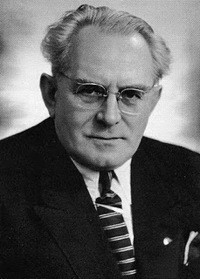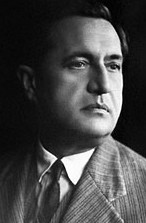
Zdeněk Chalabala |
Zdenek Chalabala

His compatriots called Halabala a “friend of Russian music”. And indeed, wherever the artist has worked for many years of his activity as a conductor, Russian music has always been in the center of his attention along with Czech and Slovak music.
Halabala was a born opera conductor. He came to the theater in 1924 and first stood at the podium in the small town of Ugreshski Hradiste. A graduate of the Brno Conservatory, a pupil of L. Janáček and F. Neumann, he very quickly showed his abilities, conducting both in the theater and in concerts of the Slovak Philharmonic founded with his participation. Since 1925, he began working at the Brno Folk Theater, of which he later became the chief conductor.
By this time, not only the creative style of the conductor was determined, but also the direction of his activity: he staged the operas of Dvořák and Fibich in Brno, vigorously promoted the work of L. Janáček, turned to the music of modern composers — Novak, Förster, E. Schulhoff, B. Martina, to the Russian classics (“The Snow Maiden”, “Prince Igor”, “Boris Godunov”, “Khovanshchina”, “The Tsar’s Bride”, “Kitezh”). A big role in his fate was played by a meeting with Chaliapin, whom the conductor calls one of his “real teachers”: in 1931, the Russian singer toured to Brno, performing the part of Boris.
In the next decade, working together with V. Talich at the Prague National Theater, Halabala was guided by the same principles. Along with Czech and Russian classics, he staged operas by B. Vomachka, M. Krejci, I. Zelinka, F. Shkroupa.
The heyday of Halabala’s activity came in the post-war period. He was the chief conductor of the largest theaters in Czechoslovakia – in Ostrava (1945-1947), Brno (1949-1952), Bratislava (1952-1953) and, finally, from 1953 until the end of his life he headed the National Theater in Prague. Brilliant productions of domestic and Russian classics, such modern operas as Svyatopluk by Sukhonya and Prokofiev’s Tale of a Real Man, brought Halabala well-deserved recognition.
The conductor has repeatedly performed abroad – in Yugoslavia, Poland, East Germany, Italy. In 1 he traveled to the USSR for the first time with the Prague National Theatre, conducting Smetana’s The Bartered Bride and Dvořák’s Rusalka. And two years later he toured at the Moscow Bolshoi Theater, where he participated in the production of “Boris Godunov”, “The Taming of the Shrew” by Shebalin, “Her Stepdaughter” by Janacek and in Leningrad – “The Mermaid” by Dvorak. The performances staged under his direction were called by the Moscow press “a significant event in the musical life”; critics praised the work of a “truly subtle and sensitive artist” who “captivated the listeners with a convincing interpretation.”
The best features of Halabala’s talent – depth and subtlety, wide scope, scale of concepts – are also reflected in the recordings he left, including the operas “Whirlpool” by Sukhonya, “Sharka” by Fibich, “Devil and Kacha” by Dvorak and others, as well as made in USSR recording of V. Shebalin’s opera “The Taming of the Shrew”.
L. Grigoriev, J. Platek





